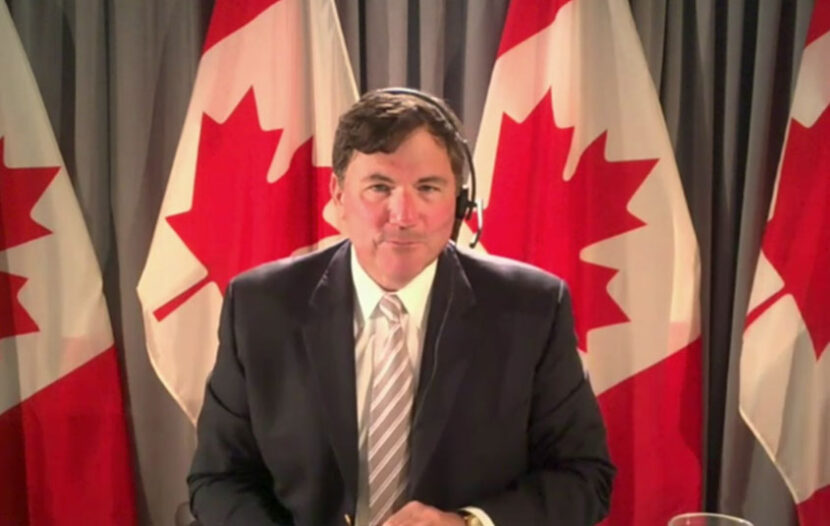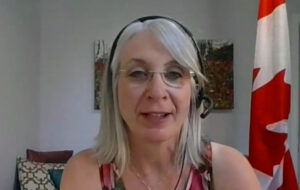OTTAWA — The Canadian government is finally ready to take the advice of its own advisory panel and ditching the mandatory 3-day hotel quarantine requirement, and easing up on the 14-day quarantine too.
The new policy is “currently being considered”, but it sounds as though it’s essentially a go, for early July.
However this will come in gradual phases, and the new policy announced today only applies to those with current right of entry into Canada, for example: Canadians already abroad who are returning home; essential workers; foreign students; and other categories of travellers on the approved list.
A briefing today with Minister of Intergovernmental Affairs Dominic LeBlanc and Health Minister Patty Hajdu confirmed what earlier reports had indicated: that fully vaccinated returning Canadian travellers will no longer be required to complete the 3-day hotel quarantine. The 14-day quarantine will also fall by the wayside for the double-dosed. Instead, they will be asked to quarantine at home until they get a negative COVID test result.
Minister Hajdu said today those double-dosed travellers coming across the border will need to have been fully vaccinated 14 days or more before their arrival in Canada, and PCR tests both pre- and post-arrival are still required. Travellers will also need to present a plan for their home quarantine, and will need to quarantine at home until they receive their negative test results.
“It is better to be slow and cautious … rather than moving rapidly and having outbreaks,” said Minister Hajdu. “We are on a good path.”
She added: “We have a variety of phases we’re working on. Some countries have reopened [and then had to close again]. We want to take things carefully and cautiously.”
Dr. Theresa Tam indicated that the next step for phasing out the quarantine for regular travellers could come when Canada hits the 75% vaccination mark.
Minister LeBlanc answered questions about vaccination passports, saying that the federal government is “working out those details” and that “border agents will have everything they need.” He said the federal government is working with the provinces on a long term solution for vaccination certification.
Today’s news follows on the heels of yesterday’s comments by Prime Minister Justin Trudeau, as reported on Travelweek.ca, who hinted that restrictions could soon be eased for Canadians and travellers who have had their double dose of COVID vaccine.
All signs point to a very cautious, phased-in reopening. The travel advisory is still in place, so for now this may only apply to returning travellers.
During his COVID briefing yesterday, Trudeau said: “We are looking at how we can ease the [travel and border restriction] rules based on science … the easing of restrictions will be focused on Canadians who have been fully vaccinated.” Trudeau added: “We will have more announcements to make” about eased restriction for two-dose travellers “in the weeks to come.”
Asked about timing, for Canadians making summer travel plans, Trudeau would not commit to any timeline. The next potential renewal date for the Canada-U.S. border closure is June 21. Asked about June 21 specifically, Trudeau said: “June 21 is the day [the list of restrictions] does get rolled over, or not. When there are announcements to be made you can be sure we’ll be making them.”
Trudeau repeatedly stressed the need for Canadians to get both their doses of vaccine, suggesting that travel is among the incentives for the double dose. “As more people become protected, yes we will be able to ease up on the rules.”
The talk about eased restrictions come as Trudeau prepares to attend the G7 Summit in the UK, scheduled for June 11 – 13. U.S. President Biden will be there, along with the other G7 leaders. UK Prime Minister Boris Johnson has already indicated that vaccine passports will be on the G7 Summit agenda.
Currently some 62% of eligible Canadians have received at least one dose of COVID vaccine, and 8% of the population has received two doses.
A government advisory panel’s report released in late May called for the elimination of the mandatory hotel quarantine, in place since mid-February, based on findings that the requirement is an expensive, inconsistent policy that contains loopholes.
The COVID-19 Testing and Screening Expert Advisory Panel also called for implementing changes to testing and screening, and eliminating all quarantine for fully vaccinated travellers.
The NACC, the Canadian Travel & Tourism Roundtable and more have ramped up their calls in recent days for the federal government to follow the recommendations from its own panel. And a recent editorial in the Globe noted that Canada’s border measures must be about managing risk: “For now, Canada has to stay vigilant at the border. That means easing restrictions on fully vaccinated travellers, while tightening the rules for those who are not.”


